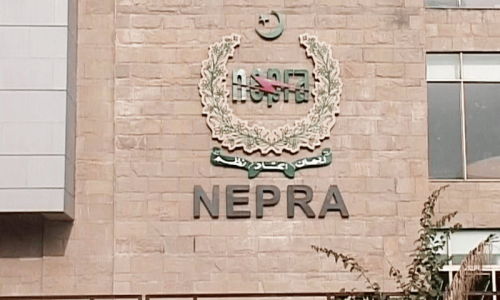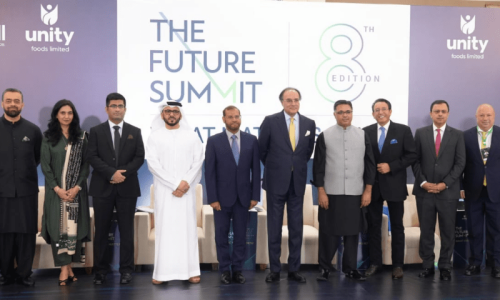 Pakistan faces grim economic prospects in the next 12 months and the situation calls for emergency measures to control one of the highest rates of inflation in the world and a probable drop in the currency value due to the widening current account deficit and dwindling foreign exchange reserves.
Pakistan faces grim economic prospects in the next 12 months and the situation calls for emergency measures to control one of the highest rates of inflation in the world and a probable drop in the currency value due to the widening current account deficit and dwindling foreign exchange reserves.
Pervez Musharraf’s regime has allowed the crisis to develop to a degree where the new government may not have any option but to take tough decisions if it wants to control the situation within 12-18 months because it would take at least that long for the measures to take effect. It is disappointing that the political parties, who won the elections, have not come out with any major policy statement about their plans to address the immediate economic issues.
With oil price having broken the $110-a-barrel barrier and the international commodity and food prices touching record levels, it is easy to forget that the reasons for the country’s economic woes go beyond that. But before we discuss those, it is important to list the most serious near term issues:
* Pakistan has the fifth highest inflation rate in the world after Venezuela, Russia, Egypt, and Sri Lanka, according to Bloomberg data. Clearly oil price is not the only reason for our inflation. The overall inflation in the current fiscal year is around 16.5 per cent compared to the widely cited range of 8-9 per cent by the government officials. Similarly, the food inflation rate reached 21 per cent during the period July-2007 to February-2008.
* The budget deficit could reach 5.9 of the GDP from 4.3 per cent in the previous year. A revenue shortfall of around Rs100 billion or more in the Federal Board of Revenue’s tax collections and Rs140 billion gap on account of higher oil prices will be two major reasons for this deficit. The government’s borrowings from the State Bank increased by Rs240 billion during the first seven months of FY 2007-2008, and have contributed to the inflation already under pressure due to the supply side factors.
* The central bank’s liquid foreign exchange reserves (excluding gold) dropped to about $10.3 billion at the end of February 2008 and cover only three months of imports. The government may need to raise about $2 billion in medium- term foreign debt to help pay for the rising imports and prevent a further decline in the reserves. Saudi Arabia has recently extended a grant of $300 million but this will not be enough. A further drop of $1.8 billion in the reserves can be expected by end-April.
*The currency has depreciated by about 3.3 per cent since the imposition of the emergency on November 3, 2007 and a weak dollar has prevented a sharper fall. However, with high inflation rate and weakening current account and foreign exchange reserves position, further depreciation of rupee appears to be unavoidable. This will fuel more inflation, and discourage investment flows.
A comprehensive set of actions is needed to control the twin deficits and inflation. A piecemeal and ad hoc approach will only exacerbate the economic woes and is likely to backfire in the next 12 months. A tablet of aspirin cannot work when a strong doze of anti-biotic is needed to kill a fast spreading virus.
Fiscal deficit: Fiscal deficit is one of the core causes of a persistently high inflation rate in Pakistan compared to the other countries. There are three structural reasons for the fiscal deficit: (a) narrow tax base and low tax-to-GDP ratio;( b)wasteful government expenditure; and (c) protection and favourable treatment given to special interest groups.
While there has been a lot of discussion on the first two, I will focus on the third in the context of the current situation and rising oil prices
Oil pricing formula: One example of undue and unfair treatment is the oil pricing formula. The discussions about oil subsidy (of around Rs160 billion) are misleading as they do not take into account the pricing policy which not only guarantees high profits for the refiners, oil marketing companies and petroleum dealers but is also ‘rigged’ to ensure increasing profits when the oil price is going up. This scandalous policy has resulted in refining margins in Pakistan, which are 2-3 times higher than the comparable margins in Asia.
The new parliament must immediately form a special committee to investigate into this and hold public hearings to bring full transparency to the oil pricing policy. The space here does not permit for a full discussion of the formula but the main components and anomalies, taking diesel oil as an example, are as follows:
The oil pricing formula benefits the oil companies at virtually every stage in an unfair and opaque manner. It violates the fundamental principles of market-based pricing and deregulation. It protects the oil companies at the cost of the consumers without giving them the right to know how exactly the price is calculated.
The government must immediately cut the deemed duty to five from 10 per cent and revise the marketing and dealer margin policy so that these are calculated on per litre basis. This will ease inflationary pressures, to some extent, due to increasing cost of fuel and rising government deficit needed to finance the payments to oil companies.
Income tax rate on bank profits: Given the expected short fall of more than Rs100 billion in the tax collections, a 10 per cent special energy surcharge should be levied on the pre-tax profits of the scheduled banks. According to the State Bank, the pre-tax profits of the banking industry were around Rs170 billion during the six months period ended September 2007. Assuming that their annual pre-tax profits could exceed Rs350 billion, given the rising quarterly trend, an additional 10 per cent surcharge could yield Rs35 billion.
Business or trading income from stocks: Another source of additional revenue is the income of the brokers from trading stocks. The capital value tax (CVT) on stock market transactions yielded around Rs2.24 billion during 2006-07 but this is peanuts compared to the revenue potential from taxing the trading income.
The short- term gains (defined to include periods up to one-year holding period) from trading stocks made by brokers, banks and other financial institutions are treated as business income worldwide and not as capital gains as the policy makers in Pakistan have been led to believe. These trading profits are treated as business income and not as ‘capital gains’, and therefore taxed at normal tax rates.
While the government need not tax the capital gains of bonafide foreign institutional investors and long-term investors (or tax them at a lower rate), the business income of stock traders should be taxed at normal corporate tax rates. It is estimated that about 70 per cent of the trading volume is due to the activity of local short-term traders – that too on borrowed funds. The taxation of this activity – as is the practice in all countries without almost any exception - is unlikely to hurt investment activity or trading. The argument that it may cause flight of capital does not have much merit because the locally-borrowed short-term funds just cannot be invested offshore.
Active trading is healthy for capital markets and the government should encourage it by withdrawing CVT on trading but the trading income should be taxed at normal tax rates. While estimates vary and depend on the trading volume, this could bring in a minimum of Rs25 billion in additional revenues.
Trade deficit — oil accounts for only 28 per cent of imports; It is common to blame high oil prices for the rising import bill and the trade deficit. The State Bank data reveals that it is only part of the problem as illustrated below:
The petroleum imports accounted for 28 per cent of total imports of $18.56 billion and around 29 per cent of the total increase of $2.98 billion in the imports during this period. The government needs to take urgent steps to cut imports of non-essential items like mobile phones, generators for private use, motor cars, branded food items for high income groups, and “other” imports through non-banking channels. This should be done through increase in import duties as well as through administrative measures.
A rationalisation of import policy and review of national priorities has become over due. We must discourage non-essential imports and facilitate imports of raw materials and primary food items at lower tariffs. This will not only help to reduce the current account deficit but would also be anti-inflationary. Why not import raw cotton through road transport from India if it is cheaper to do so and will help reduce costs of our textile mills?
The government must remove fiscal, trade, and monetary policy distortions. It must stop giving favourable and unjustified special treatment to special interest groups at the cost of high inflation, budget and trade deficits and ultimately the destabilisation of the economy which can damaging for the democratic process.














































Dear visitor, the comments section is undergoing an overhaul and will return soon.